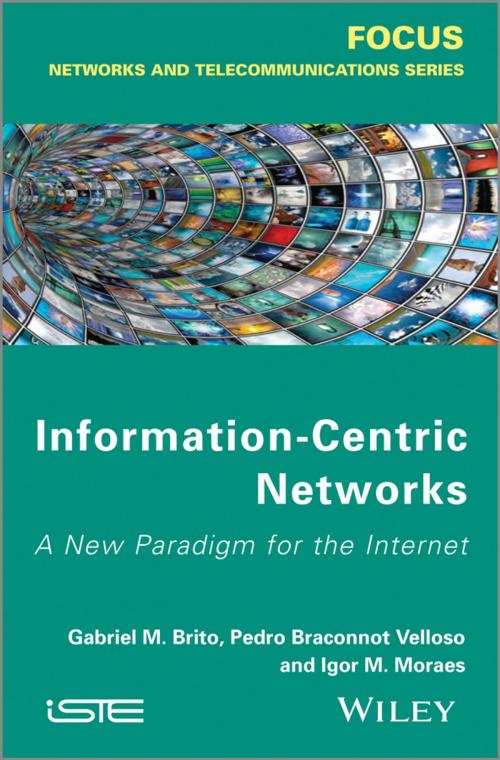Information-Centric Networks
A New Paradigm for the Internet
Nonfiction, Computers, Advanced Computing, Information Technology| Author: | Gabriel M. de Brito, Igor M. Moraes, Pedro B. Velloso | ISBN: | 9781118579893 |
| Publisher: | Wiley | Publication: | May 6, 2013 |
| Imprint: | Wiley-ISTE | Language: | English |
| Author: | Gabriel M. de Brito, Igor M. Moraes, Pedro B. Velloso |
| ISBN: | 9781118579893 |
| Publisher: | Wiley |
| Publication: | May 6, 2013 |
| Imprint: | Wiley-ISTE |
| Language: | English |
Since its inception, the Internet has evolved from a textual information system towards a multimedia information system, in which data, services and applications are consumed as content. Today, however, the main problem faced is that applications are now content-oriented but the protocol stack remains the same, based on the content location. Thus, it is clear that the Internet’s current architecture must change. This new architecture should take into account aspects to improve content location and delivery efficiency and also content availability. Fulfilling these requirements is the main goal of information-centric networks (ICNs).
ICN is a new communication paradigm to increase the efficiency of content delivery and also content availability. In this new concept, the network infrastructure actively contributes to content caching and distribution. This book presents the basic concepts of ICNs, describes the main architecture proposals for these networks, and discusses the main challenges to their development. Information Centric-Networks looks at the current challenges for this concept, including: naming, routing and caching on the network-core elements, several aspects of content security, user privacy, and practical issues in implementing ICNs.
Contents
- Content Distribution on the Internet.
- Information-Centric Networks.
- Main ICN Architectures.
- Challenges.
- Practical Issues.
About the Authors
Gabriel M. Brito is an Engineer at Petrobras in Brazil and studying for a Master’s degree at the Universidade Federal Fluminense in Brazil.
Pedro Braconnot Velloso is an Associate Professor in the Department of Computer Science at the Universidade Federal Fluminense (UFF), Brazil. He worked for Bell Labs France as a research engineer from 2009 to 2011.
Igor M. Moraes is an Associate Professor at the Universidade Federal Fluminense in Brazil.
Since its inception, the Internet has evolved from a textual information system towards a multimedia information system, in which data, services and applications are consumed as content. Today, however, the main problem faced is that applications are now content-oriented but the protocol stack remains the same, based on the content location. Thus, it is clear that the Internet’s current architecture must change. This new architecture should take into account aspects to improve content location and delivery efficiency and also content availability. Fulfilling these requirements is the main goal of information-centric networks (ICNs).
ICN is a new communication paradigm to increase the efficiency of content delivery and also content availability. In this new concept, the network infrastructure actively contributes to content caching and distribution. This book presents the basic concepts of ICNs, describes the main architecture proposals for these networks, and discusses the main challenges to their development. Information Centric-Networks looks at the current challenges for this concept, including: naming, routing and caching on the network-core elements, several aspects of content security, user privacy, and practical issues in implementing ICNs.
Contents
- Content Distribution on the Internet.
- Information-Centric Networks.
- Main ICN Architectures.
- Challenges.
- Practical Issues.
About the Authors
Gabriel M. Brito is an Engineer at Petrobras in Brazil and studying for a Master’s degree at the Universidade Federal Fluminense in Brazil.
Pedro Braconnot Velloso is an Associate Professor in the Department of Computer Science at the Universidade Federal Fluminense (UFF), Brazil. He worked for Bell Labs France as a research engineer from 2009 to 2011.
Igor M. Moraes is an Associate Professor at the Universidade Federal Fluminense in Brazil.















